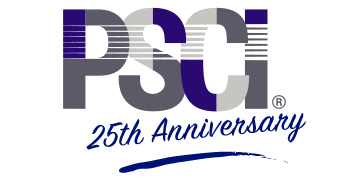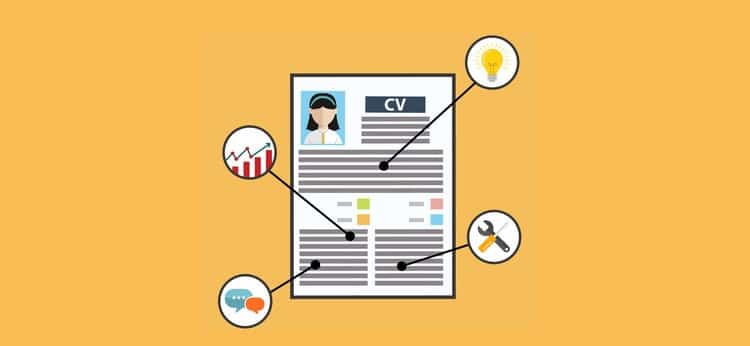The “What is your greatest weakness?” question in job interviews can be one of the most daunting. Many candidates fear that revealing a true weakness could diminish their chances of getting the job. However, PSCI emphasizes that this question is less about pinpointing flaws and more about assessing self-awareness, honesty, and the ability to improve.
Understanding why interviewers ask about strengths and weaknesses is key. They are looking to gauge your self-awareness, honesty, and whether you’re proactive in addressing shortcomings. The right approach to this question can turn it from a potential pitfall into an opportunity to demonstrate personal growth and professional maturity.
When answering, honesty is crucial. It’s tempting to disguise a strength as a weakness, but interviewers can see through this tactic. Instead, focus on a genuine area where you have room to grow. Importantly, always pair your weakness with a strategy for improvement, showing that you’re committed to personal and professional development.
For example, if your weakness is public speaking, explain the steps you’re taking to improve, like attending Toastmasters meetings or practicing presentations with colleagues. This approach shows that you’re not only aware of your weaknesses but are also actively working to overcome them.
Remember, the goal isn’t to present yourself as perfect but as self-aware, honest, and dedicated to continual self-improvement.
What Interviewers Look For in a Weakness Answer
When you’re asked about your weaknesses in a job interview, interviewers are looking for more than just the weakness itself. They are assessing key qualities that speak volumes about your potential as an employee. They’re looking for:
Self-Awareness
- Recognition of Weaknesses: Demonstrating that you are aware of your areas for improvement shows a level of introspection and self-knowledge. It indicates that you are capable of critically assessing your own skills and behaviors.
- Balanced Perspective: A well-thought-out weakness answer should reflect a balanced understanding of yourself. It’s not just about knowing your limitations but also recognizing your strengths.
Honesty
- Genuine Response: Interviewers can often tell when candidates give rehearsed, insincere answers. Honesty in admitting a real weakness is valued as it shows integrity and trustworthiness.
- Avoiding Clichés: Steering clear of clichéd responses like “I work too hard” or “I’m a perfectionist” is crucial. Such answers can come off as evasive and inauthentic.
Desire and Ability to Improve
- Action Plan: Sharing how you are working on your weakness is critical. This shows that you are proactive and committed to personal growth.
- Evidence of Progress: If possible, provide examples of how you have already made improvements. This could involve specific actions, courses, or changes in your work approach.
- Future Aspirations: Illustrate how overcoming this weakness is part of your career development plan, showing your long-term commitment to growth and success.
In summary, employers value a weakness answer that demonstrates self-awareness, honesty, and a clear commitment to improvement. Such an answer reveals much about your character and potential as an employee, making it a crucial part of the interview process.
9 Good Example Weaknesses to Use in an Interview
1. Perfectionism
Perfectionism, while often seen as a positive trait, can be a double-edged sword. When taken to extremes, it can lead to inefficiencies or difficulty in delegating tasks.
- Sample Answer: “I tend to be a perfectionist, which means I sometimes spend too much time on details or have trouble delegating tasks. However, I’m working on this by setting more realistic standards and reminding myself of the big picture. I’ve also started practicing trust in the capabilities of my team members.”
2. Disorganization
Disorganization can be a common issue, especially in fast-paced environments or when juggling multiple responsibilities.
- Sample Answer: “In the past, I’ve struggled with disorganization, particularly when balancing multiple projects. This sometimes led to inefficiency. To address this, I’ve started using digital tools for time management and project tracking, which has significantly improved my organization and productivity.”
Each of these weaknesses, when presented thoughtfully, demonstrates a level of self-awareness and a commitment to professional growth that is valued by employers.
3. Difficulty Delegating
Difficulty in delegating tasks is a common challenge, especially for those who like to maintain control or have high standards. Recognizing this can demonstrate maturity and the desire to build trust within a team.
- Sample Answer: “I’ve realized that I have a tendency to take on too much myself, rather than delegating tasks to others. This sometimes affects my workload and stress levels. I’m actively working on this by reminding myself that delegation is key to team success and that it helps in developing others’ skills.”
4. Getting Impatient
Impatience, particularly in high-pressure environments, can be a hurdle. It’s a weakness that, when managed well, can be channeled into a drive for efficiency.
- Sample Answer: “I’ve noticed that I can become impatient when projects run behind schedule. While this stems from my eagerness to meet deadlines, I understand it can create unnecessary pressure. I’m learning to manage this by focusing on effective communication and planning, and by being more flexible with timelines.”
5. Lack of Confidence
Lack of confidence can be a common issue, especially in new or challenging situations. Acknowledging this weakness shows self-awareness and a willingness to develop.
- Sample Answer: “I’ve noticed that sometimes I lack confidence in my abilities, particularly when tackling unfamiliar tasks. This can lead to hesitation in decision-making or expressing my ideas. I’m addressing this by seeking feedback, taking on new challenges to build my skills, and actively participating in professional development workshops.”
6. Overthinking Decisions
Overthinking decisions can be a drawback in fast-paced environments where quick decision-making is crucial. Recognizing this tendency reflects an understanding of the need for balance in decision-making.
- Sample Answer: “I tend to overthink decisions, weighing every possible outcome, which can slow down the process. I realize that this stems from my desire to make well-informed choices. To counter this, I’m learning to trust my instincts more and to set time limits for decision-making to ensure efficiency.”
7. Trouble Managing Work-Life Balance
Trouble managing work-life balance is a relatable weakness in today’s fast-paced work environment. Recognizing it shows a commitment to achieving personal and professional well-being.
- Sample Answer: “I have occasionally struggled with maintaining a healthy work-life balance. This has sometimes led to burnout. I’m actively working on this by setting clearer boundaries between work and personal time, using time management tools, and prioritizing tasks more effectively.”
8. Too Talkative
Being too talkative in the workplace can hinder productivity and focus. Admitting this can demonstrate your awareness of professional communication norms.
- Sample Answer: “I’ve been told that I’m quite talkative, which, while beneficial for team morale, can sometimes distract from productivity. I’m learning to balance my sociability with a focus on efficiency, ensuring that my conversations are purposeful and work-related.”
9. Self-Criticism
Self-criticism is a common weakness that, when managed properly, can be channeled into a powerful tool for self-improvement. Acknowledging this trait in an interview can demonstrate your capacity for self-reflection and commitment to personal growth.
- Sample Answer: “I tend to be overly critical of my work, which sometimes affects my confidence and decision-making. I’ve realized that while it’s important to strive for excellence, being too self-critical can be counterproductive. To address this, I’ve started seeking constructive feedback from colleagues and mentors to gain a more balanced perspective. Additionally, I’m learning to celebrate small successes and view mistakes as learning opportunities rather than failures. This approach has helped me build confidence and make more decisive and effective contributions.”
By sharing this weakness in a thoughtful manner, candidates show potential employers that they are not only aware of their areas for improvement but are also actively working on turning them into strengths. This level of self-awareness and proactive attitude is highly valued in the professional world.
Tips for Framing Your Weaknesses Positively
Be Honest but Frame Weaknesses Constructively
When discussing weaknesses in a job interview, honesty is essential, but so is the framing. PSCI recommends a constructive approach:
- Admit the Weakness: Be upfront about your areas for improvement. Avoid downplaying or hiding them.
- Positive Spin: Frame the weakness in a way that shows your awareness and proactive attitude. For example, if your weakness is impatience, discuss how it fuels your drive for efficiency.
Provide Specific Examples from Past Experience
Using specific examples can make your response more credible and relatable:
- Real Situations: Discuss real scenarios where this weakness came into play.
- Learnings and Outcomes: Talk about what you learned from these experiences and how they contributed to your professional growth.
- Balance the Narrative: While focusing on the weakness, ensure the story also highlights your strengths and problem-solving skills.
Emphasize Desire and Efforts to Improve
Show that you’re not just aware of your weaknesses but are actively working to overcome them:
- Improvement Strategies: Share specific strategies or actions you have taken or are currently taking to improve.
- Growth Mindset: Emphasize your commitment to personal and professional development.
- Future Goals: Explain how overcoming this weakness is part of your career development plan.
Incorporating these tips into your interview strategy can help you turn potential negatives into positives, demonstrating to employers that you are a self-aware, reflective, and growth-oriented candidate.
FAQ
What if I don’t have any weaknesses?
Everyone has areas for improvement. Saying you have no weaknesses may come across as untruthful or lacking self-awareness. PSCI advises identifying areas you’re working on, even if they’re small, to show your commitment to continuous learning and growth.
Should I use the same weakness for every interview?
Your weakness should be relevant to the specific job. Tailor it to fit the role and company culture. This approach shows that you’ve done your research and are genuinely reflecting on how you fit into the role.
How many weaknesses should I share?
It’s best to focus on one well-thought-out weakness. This allows you to give a detailed answer and discuss how you’re addressing it. Sharing too many weaknesses might raise red flags about your suitability for the role.
What if my weakness relates directly to the job requirements?
If your weakness is a core requirement of the job, you need to be honest but also emphasize your eagerness to learn and improve. Discuss concrete steps you’re taking to build this skill.
Should I turn my weakness into a strength?
Avoid the cliché of presenting a strength as a weakness. Instead, choose a real area of improvement and discuss how you’re working on it. This honesty shows integrity and a genuine desire to grow.
How do I prepare my weakness answer before the interview?
Reflect on feedback you’ve received in the past and times you’ve faced challenges. Choose a weakness relevant to the role and plan how to articulate it, focusing on what you’ve learned and how you’re improving.
PSCI recommends these strategies to ensure your weakness answer reflects self-awareness, sincerity, and a commitment to professional development.
Conclusion
Navigating the tricky waters of the “weaknesses” question in a job interview can be a defining moment in your career journey. PSCI understands the importance of this question and advises candidates to approach it with a blend of honesty, self-awareness, and a clear plan for improvement. The examples of weaknesses provided in this article are not just responses; they are reflections of a candidate’s willingness to grow, learn, and evolve professionally.
Remember, the goal is not to present a flaw but to showcase your human side, your capacity for self-assessment, and your commitment to turning weaknesses into strengths. Employers value candidates who can critically analyze themselves and take proactive steps towards personal and professional betterment.
By preparing thoughtful, genuine answers to the weaknesses question, you’re not only answering a common interview query but also painting a picture of yourself as a dynamic, reflective, and adaptable professional. This approach can significantly enhance your appeal as a candidate and demonstrate that you are a valuable asset to any team.
In conclusion, view the weakness question as an opportunity to shine, to differentiate yourself from the crowd, and to show that you are ready for the challenges and opportunities that lie ahead in your career.








